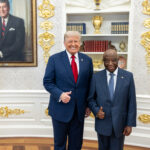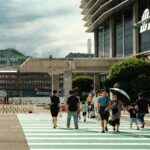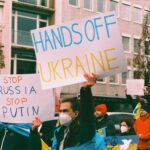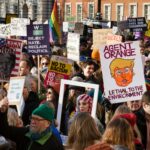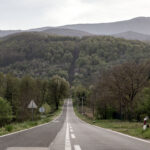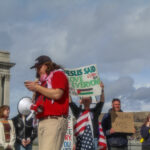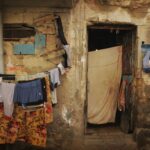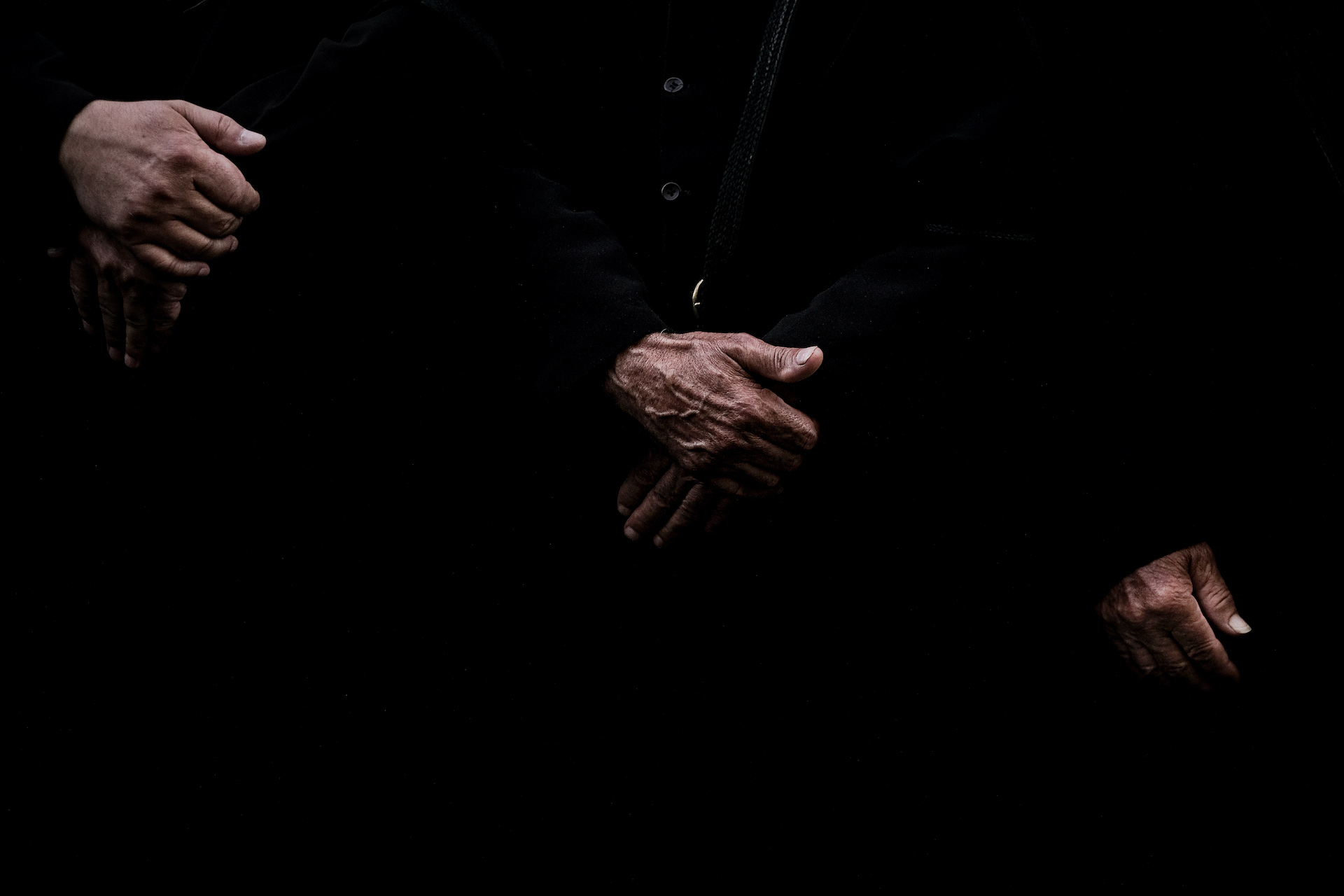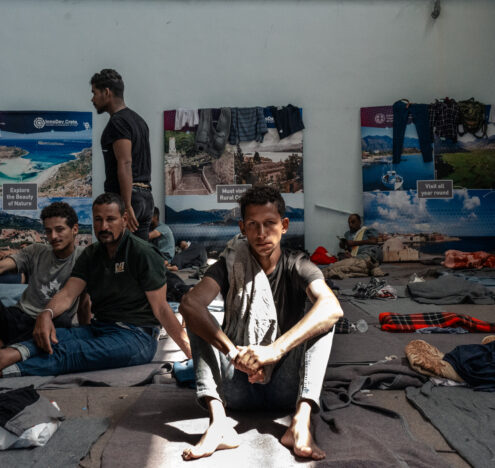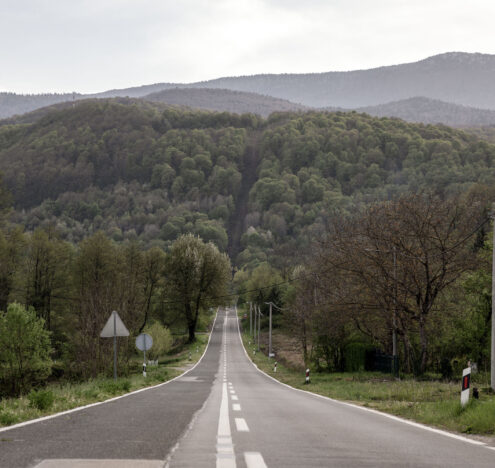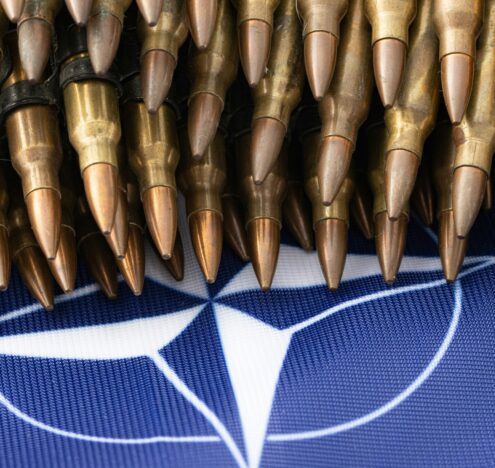It’s just moments before sunrise in Baysour, a sprawling green mountain town just above Beirut. Baysour is one of Lebanon’s largest and most important centers for members of the minority Druze religious sect, and this morning is their only religious holiday: Eid al-Adha. A clock on the side of the road in the main commercial square reads 4:50 a.m. in red scrolling pixels.
The sun inches upward as women quietly materialize, one by one, from the surrounding alleyways to kiss one another on the cheeks. “Happy Eid!” A few families soon trickle in, the men and boys topped with white knitted skull caps and baggy sirwal pants.
Many of them have been up the entire night, whiling the hours away with fireworks and sweets ahead of the main event at sunrise.

Suddenly, several dozen men donned in solemn white caps file down the stairs into the square and from one of the sidestreets, led by Baysour’s top sheikh. It’s time for Liqaa al-Eid — that is, the “Eid Meeting,” a little-known yearly ceremony for Baysour’s Druze faithful to mark the holiday.
Peaceful Tradition
In a sort of ritualized meet-and-greet passed down orally through generations, religious sheikhs from the town’s two main families, beit al-Malaeb and beit al-Aridi, step out from their separate prayer halls to convene in a public display of unity. They shake and kiss one another’s hands, then stand together in a circle wishing members of both families a blessed holiday.
The men will also recite the opening sura of the Quran in a low, unified hum.

Meanwhile, dozens of women, draped in flowing white headscarves called manadeel, are now amassed on the balconies and a stone stairwell leading down to the square, watching on.
Just a few hours’ drive south of here, a deadly airwar is growing between Hezbollah fighters in Lebanon and Israeli forces across the border. Druze villages on both sides have been hit.
But for now, time for peaceful, solemn tradition.
A Misunderstood Sect
The Druze, whose faithful adhere to an offshoot of Islam that emerged in medieval Egypt and the Levant, are today a minority religious group in Lebanon, Syria, Palestine, Jordan, and further afield in the diaspora. They interpret the Quran to suggest the reincarnation of souls and draw on Abrahamic religions, Buddhism and other faiths.
Religiously adherent members of the faith prefer to call themselves the al-muwahidoun — which can translate to “the monotheists.” This is because they “believe in the oneness of God,” Sheikh Kamel Aridi, an official sheikh for Baysour’s Aridi clan, tells me.
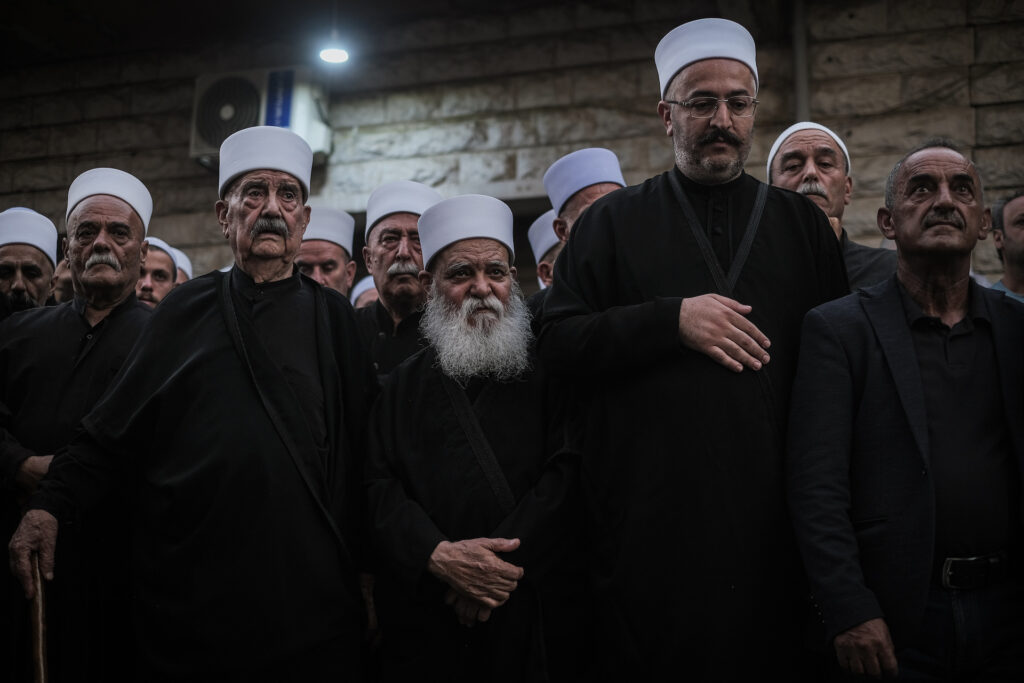
Sheikh Kamel, who also works as a local school principal, meets me at his home, spotless and adorned with his wife’s Eid al-Adha kaak pastries, in the days leading up to Eid al-Adha. At just 40 years old and towering a head above the other men in the town square, he’s among the youngest of the top sheikhs appearing at the Liqaa al-Eid ceremony on Sunday.
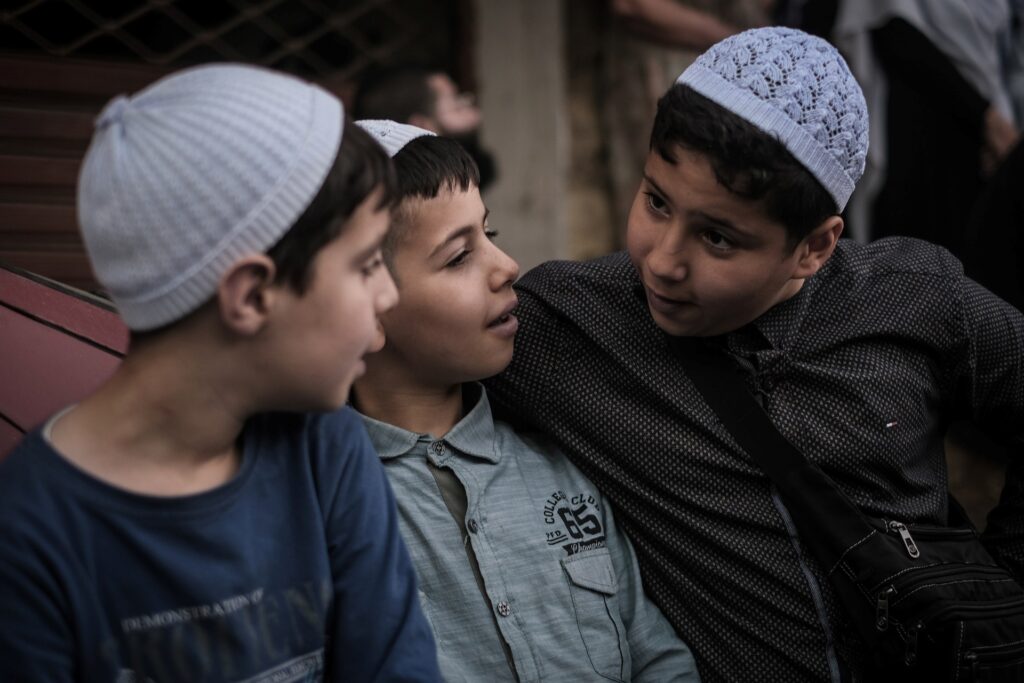
Nobody can assure me when exactly Baysour’s Liqaa al-Eid started, though it goes back at least a century, as the town’s elderly tell me they heard about it in memories passed down by their grandparents and great-grandparents. Sheikh Kamel’s own childhood Eid memories include fireworks, new clothes, and family visits. His father, mother and grandparents were all msheikhoun, he says — people of the cloth. “It’s a long chain,” he smiles.
“Pray All Night”
Baysour, with grand snoubar pine trees and a view over the Beirut airport, is one of Lebanon’s largest Druze towns and a cultural and political center for the group, deputy mayor Riyadh Malaeb tells me.
According to him, about 10,000 people live in Baysour — and most of them seem to know him by name. He drives me through the town one afternoon a few days before Eid, gently honking and waving at acquaintances along the way.
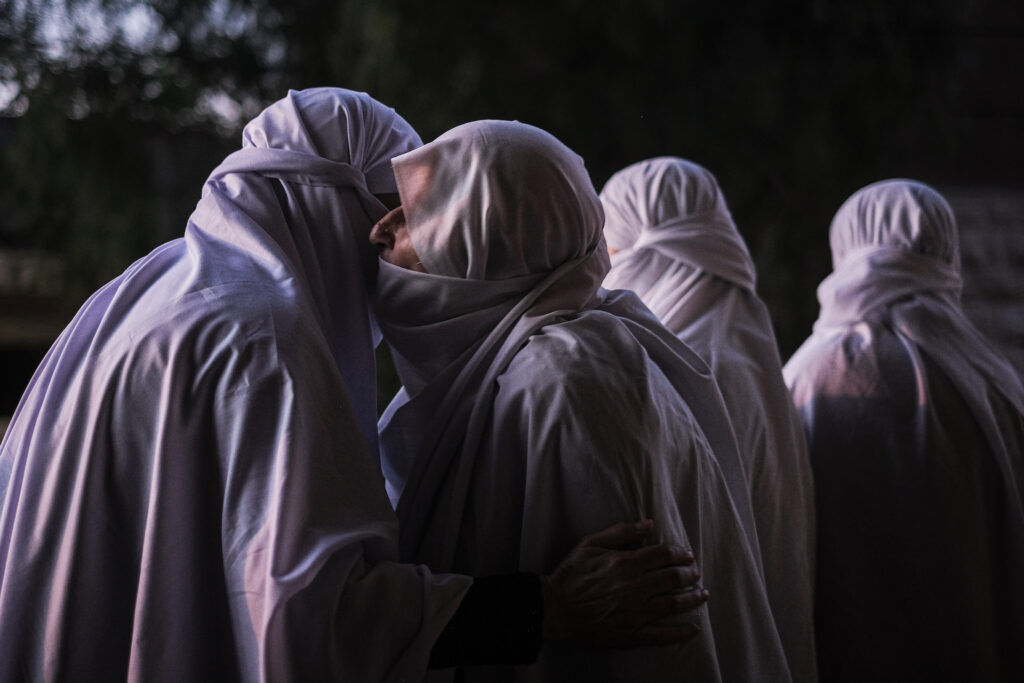
For Riyadh and other Lebanese Druze, Eid al-Adha is their only major religious holiday in a diverse yearly calendar that’s otherwise packed with festivals for Sunnis, Shia, Orthodox Christians, and Catholics. The day is an Islamic feast that marks Abraham’s willingness to sacrifice his son out of faith in God.
But information on how exactly Lebanon’s Druze celebrate their one-and-only holiday of the year is little understood outside the community.
“We [religious sheikhs] pray all night together and into the morning, that part of it is closed off” to non-sheikhs, explains Sheikh Ali Nassar Malaeb, a mustachioed man in his 60s. He invites me to talk in his living room the Wednesday before Eid. The part of the ceremony that’s open to the public — both Druze and non-Druze — doesn’t come until sunrise hits.
Eid Amid Hardship
Eid al-Adha is often a time for celebration, loads of food, and shooting Roman candles into the air. But Lebanon is in year five of a historic economic crisis wrought by the collapse of a national banking system that the World Bank has dubbed a “Ponzi scheme.” The poverty rate now reportedly stands at 44%.
On top of that is a deadly war ablaze in southern Lebanon since October, which has escalated significantly in recent days and raised questions over whether an all-out conflict a la 2006 (or worse) might be imminent.
I came back to Baysour before dawn Sunday morning wondering if there’s anything worth celebrating this Eid al-Adha.
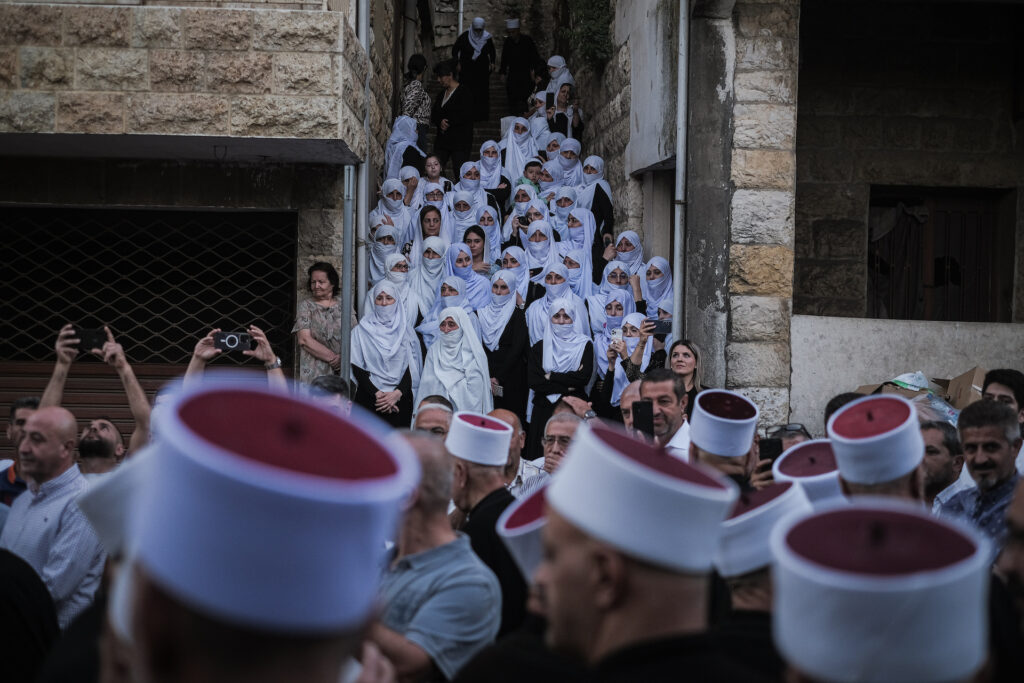
“It’s not exactly about celebration,” Sheikh Ali goes on. Instead, he explains, it’s about “cleansing yourself and renewing your soul.”
Across from the sheikh’s living room chair is a giant wall of windows overlooking a green valley and the nearby Damour River. That’s the river that gave Riyadh, who is sitting with us, the nickname everyone in town knows him by: Bahhar (“Sailor”). During the height of the Lebanese civil war in the 1980s, in his previous life as a local fighter, Riyadh used to forge across that river to go fight on the other side.
Liqaa al-Eid ceremonies during those difficult years “were thin,” Riyadh tells me, “but they still happened.”
“I Saw Everything”
According to Riyadh, the ceremony did end up halting in 1983 thanks to the “War of the Mountain” that shook the area, sending residents fleeing elsewhere for safety.
May Malaeb, a Baysour resident who was working as a nurse at that time, says she “didn’t feel Eid at all” during those years. Instead, she was too busy treating grisly war injuries at a hospital in the Chouf mountains, south of Baysour. “I saw everything. Men coming in with entire parts of their flesh missing.”
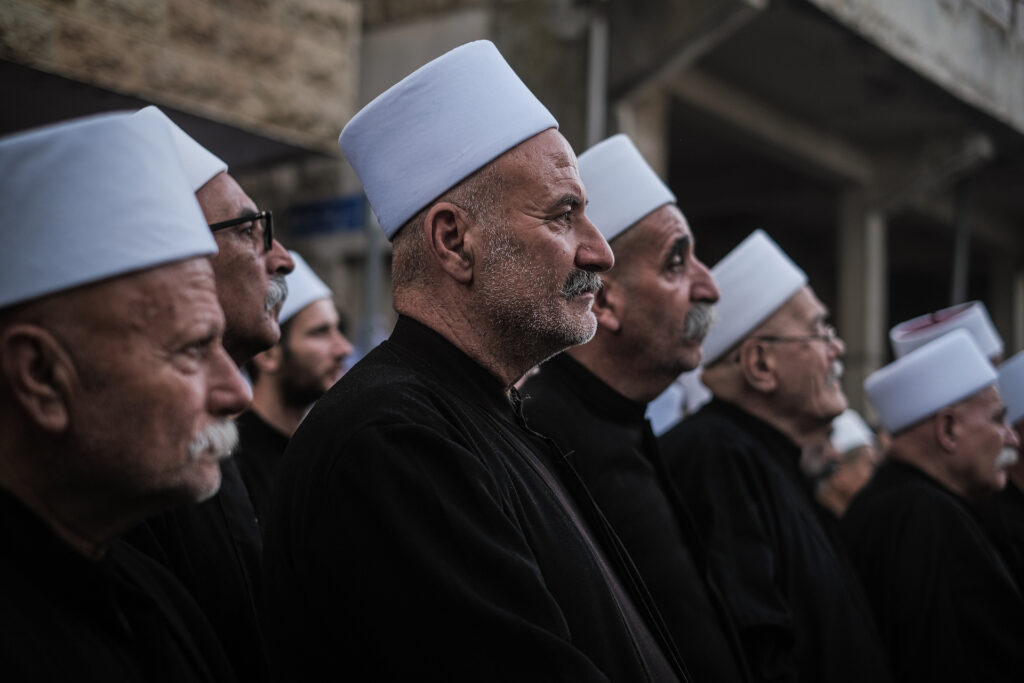
Later on, May moved with her husband, civil engineer Walid Malaeb, to Soviet-era Moscow, where they started setting up Christmas trees in their home each year. The couple stopped giving Eid al-Adha much fanfare. When the young family came back to Lebanon upon the USSR’s dissolution in 1991, they simply brought their newfound Christmas tree tradition with them.
Today, May and Walid’s three adult children all live outside of Lebanon, and aren’t planning on visiting home this year for Eid.
Decades after May’s time as a war nurse, at the height of the Covid-19 pandemic in 2020 and 2021, the Liqaa al-Eid gatherings halted yet again, Riyadh says, “to protect public health.”
Celebrations Continue
Still, concerns over a new growing war haven’t gotten bad enough yet here in Baysour to halt this year’s Liqaa.
Instead, by Sunday around 6 a.m., it’s still calm and cool on the mountain amid a furious heatwave down in Beirut. There’s a smell of jasmine from a nearby alleyway branching off of the main town square.
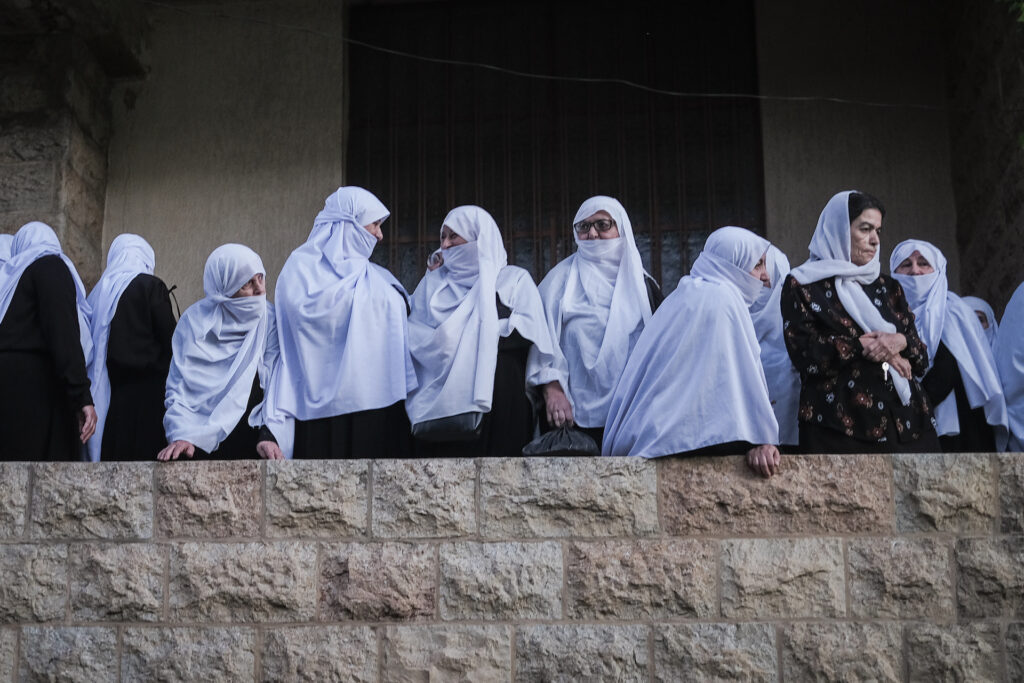
Soon, the men will finish reciting the opening of the Quran. One or two of them will make short sermons about “preserving traditions.” A besuited big-shot politician who’s a son of Baysour will say a few words through blinding white teeth, and Liqaa al-Eid will be over for this year.
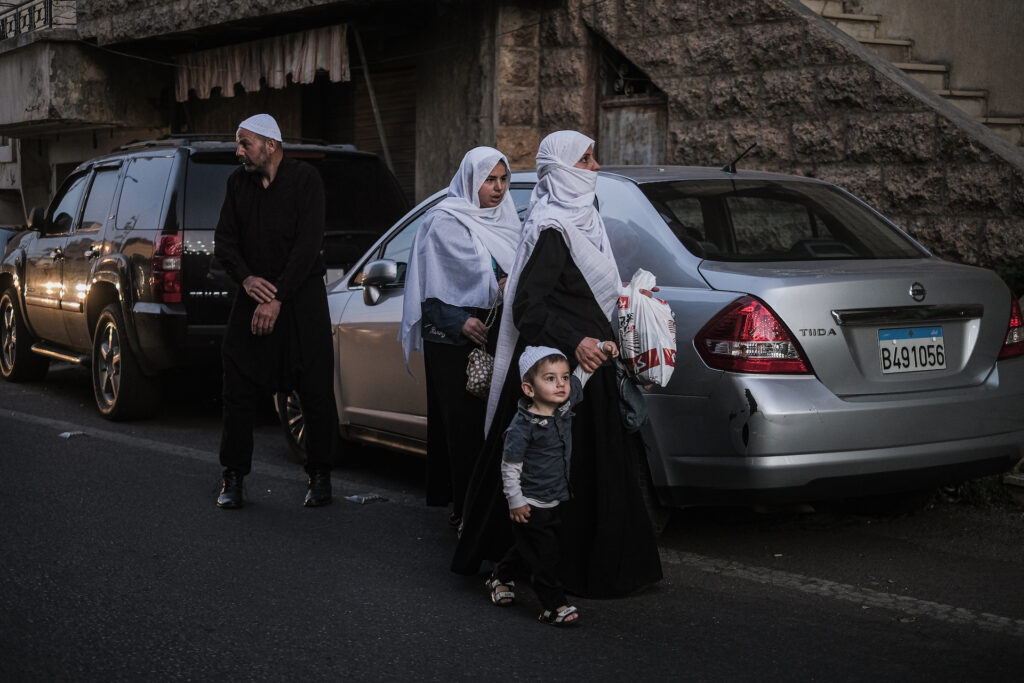
Families empty out of the square, heading back home or to their friends and relatives to drink strong coffee and eat kaak. The politician goes to a nearby home to discuss Gaza, Hamas and Hezbollah with local notables. He’ll promise a short interview, then get caught up making Eid social calls, and then promise again. It’s now daytime.
Nobody is left in the main town square, now once again simply a smattering of old stone houses and vegetable shops along the road that snakes through Baysour.
** All photos by João Sousa. Sousa is a photojournalist based in Lebanon and focused on social issues.



